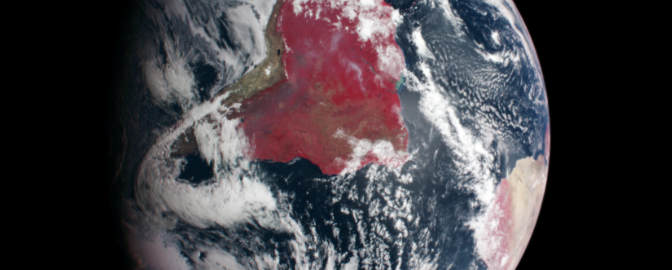The Space Advocate • Mar 17, 2025
The Space Advocate Newsletter, March 2025
This month

🚨 White House may slash NASA science by half
🧑💼 NASA dissolves key leadership offices
📝 Senate proposes a bipartisan NASA auth bill
🎤 Planetary Radio LIVE, March 24th, Washington, D.C.
In a stunning report by Eric Berger at Ars Technica, we learned that the White House is considering a staggering 50% cut to NASA’s Science Mission Directorate in the 2026 budget request. Such a dramatic cut, if implemented, would have widespread negative consequences, including the cancellation of nearly every planned spacecraft project, the premature termination of active missions throughout the Solar System, and the rapid constriction of the related scientific and technical workforce in the United States.
It would be nothing short of an extinction-level event for NASA’s science activities.
While no formal budget submission has been made, this report is credible. It is consistent with the administration’s stated spending goal and, notably, with a proposal released by the conservative think tank, Center for Renewing America, in 2023. This alternative budget declared that “every executive branch agency must focus on its core mission. For NASA, that is Deep Space Exploration, putting Americans back on the Moon, and looking to Mars…The Budget also proposes a 50% reduction in NASA Science programs and spending.” I reference this document because the organization’s founder and President, Russell Vought, is now the Director of the White House’s Office of Management and Budget, which is responsible for the upcoming budget request.
The report’s characterization of NASA’s core mission contradicts the agency’s responsibilities as codified by U.S. law. In fact, NASA’s very first objective is “the expansion of human knowledge of the Earth and of phenomena in the atmosphere and space” (51 U.S. Code § 20102 (d) (1)). Interestingly, “deep space” is not mentioned at all.
The Planetary Society is mounting a vigorous advocacy campaign to protect NASA science, beginning with our initial statement, congressional action, and reframing our upcoming Day of Action’s advocacy priorities. More will come in the coming weeks and months. I am encouraged that, in the first 48 hours, space advocates sent more than 12,000 messages to Congress arguing against cuts to space science.
Further workforce disruptions hit NASA last week. The agency announced it was disbanding the offices of its Chief Scientist, Chief Technologist, and the Office of Technology and Policy Strategy. This was the prelude to the “RIF,” Reduction In Force, and stems from an Executive Order directing all agencies to plan for “large-scale reductions in force” and submit initial plans on March 13. Members of the House Science Committee demanded to see NASA’s plan immediately, though no information was public at the time of writing.
In better news, the Senate released a bipartisan NASA Authorization bill, which would chart a far steadier path for the agency. The bill includes a “reaffirmation” for the Space Launch System (SLS), continued endorsement of Artemis, Mars Sample Return, and a balanced NASA science portfolio. The House has yet to release its version of the bill.
Until next month,
Casey Dreier
Chief of Space Policy
The Planetary Society
Want to do something?

In response to these potential cuts, The Planetary Society launched a campaign to urge U.S. residents to write their representatives and voice their concern. Add your voice — it only takes a minute. We will provide further opportunities for action in the coming weeks.

Do you live near Washington, D.C. and want to do something more fun? Join me, my colleague Sarah Al-Ahmed, Bill Nye, and other special guests for a live-taping of Planetary Radio: Space Policy Edition in downtown Washington, D.C. on March 24th. Tickets are free, but required. Get them here.
What I’m reading this month
The Survival Crisis of the U.S. Solar System Exploration Program (PDF). A historical study of the funding crisis that nearly ended planetary exploration at NASA during the early years of the Reagan administration. Written by eminent space historian (and former Planetary Society board member) John Logsdon.
Bridenstine urges Senate to quickly confirm Isaacman as NASA administrator The former NASA Administrator of the first Trump administration has spoken up for the nominee of the second. Isaacman’s nomination seems to have stalled, and is at the mercy of Sen. Ted Cruz (R-TX), who chairs the committee that would hold such hearings. Cruz represents NASA’s Johnson Space Center, which is heavily invested in both the ISS and Artemis.
Ground Truth
Data visualization and analysis

NASA science funding since 1980
Includes the 50% cut that will reportedly be proposed by the White House in FY 2026, which would be the lowest amount since 1985.
Source data: The Planetary Society’s Historical NASA Budget dataset


 Explore Worlds
Explore Worlds Find Life
Find Life Defend Earth
Defend Earth

